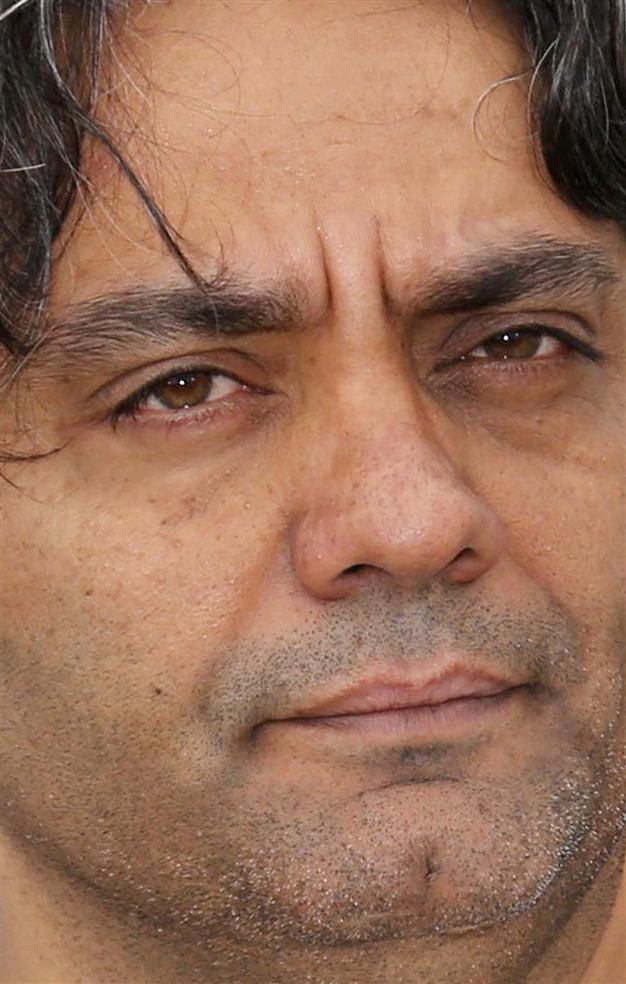Iranian director facing jail appears in Cannes with 'Manuscripts Don't Burn'
CANNES - The Associated Press

ranian director Mohammad Rasoulof poses during a photocall for the film 'Dast-Neveshtehaa Nemisoosand' (Manuscripts Don't Burn) at the 66th Cannes Film Festival in Cannes May 24. REUTERS photo
"Manuscripts Don't Burn" tells the story of an Iranian author secretly writing his memoirs and authorities' attempts to destroy the manuscript - a topic the director, Mohammad Rasoulof, knows quite a bit about.Rasoulof is also Iranian, his movies are banned in his homeland and he's been sentenced to jail by the Islamic regime there. Still, Rasoulof, who managed to make it to the Cannes Film Festival to show his film, says "Manuscripts" shouldn't be construed as his life.
"It's not a documentary, it's fiction inspired by an event which is very much true. I mean, we know the details of the event because there are survivors, there is testimonies, writings, memories about that thing," Rasoulof said in an interview on May 24after the film debuted here.
"I have met some of those people, the key people involved in that. So it's very much a true story, a real thing, but from that point on it's an inspiration. I was inspired by a true story and then I tell my own story based on it."
Two years ago, Rasoulof and fellow director Jafar Panahi were arrested in Iran for filming without a permit. The pair received six years In prison and were banned from filmmaking for 20 years on charges that included "making propaganda" against the ruling system, but Rasoulof's sentence was later reduced to a year on appeal. He is currently on bail.
Movie made clandestinely
His film "Goodbye" won a prize at Cannes in 2011, but the director wasn't allowed to travel to France to accept it. Somehow, he managed to get to Cannes this year to show "Manuscripts Don't Burn," which is competing in the sidebar competition, Un Certain Regard. Rasoulof said he wanted to do the movie to explore the "dark points in the intellectual history of Iran.
"I've always been attached to understanding those dark points and getting in to those dark points and digging into them and trying to find out what, why and how of these dark points in the intellectual history."
"Manuscripts Don't Burn" was made clandestinely in Iran, and the names of its cast and crew do not appear on the credits.
Rasoulof said he knew from the start he had a big task on his hands. "I knew that is was going to be almost mission impossible. There is going to be no legal permit, license, the government is going to be opposed to it, authorities and everything," he said.
He added: "We knew that the only way to do it is if we stick together. ... We heavily relied on ourselves and the team and that was the only way we could do it."
Much of the film appears to have been shot in Iran, but Rasoulof, who produced the movie himself, was staying tight-lipped about how he managed to get the film made without getting caught.
"Let me keep my procedures and secret thing," he said. "Maybe I want to use them for the next movie." There was much speculation about the film in the run-up to the Cannes festival, which ends Sunday. When the Cannes lineup was announced last month, Rasoulof's entry was listed simply as "Anonymous."
















